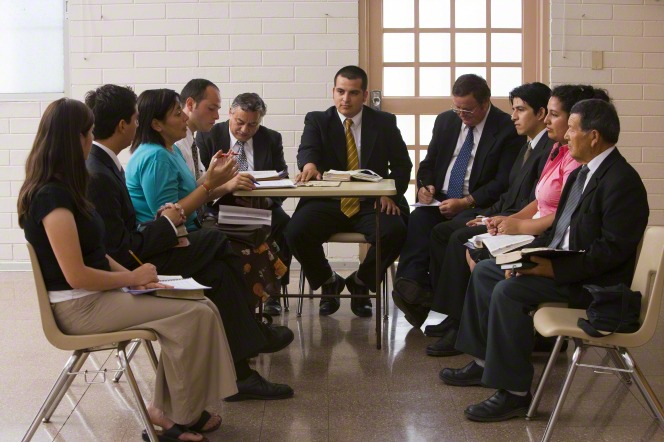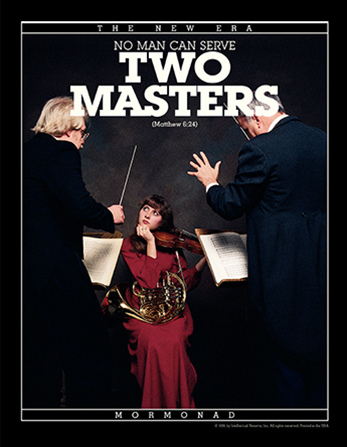3
Nephi 4:31
Worship
Through Music
What
31 And
it came to pass that they did break forth, all as one, in singing,
and apraising their
God for the great thing which he had done for them, in preserving
them from falling into the hands of their enemies.
Why
they
won the war against the Gadianton Robbers. Those who did not
surrender were slain and their leader hanged. They were so happy
and grateful to the Lord for his protection that they burst out in
song to praise the Lord.
Pattern
Thanksgiving
28 If
thou art amerry, bpraise the
Lord with singing, with music, with cdancing,
and with a dprayer of
praise and ethanksgiving.
Singing, Sing, Sang, Sung
- sing praise to the name of the Lord: Ps. 7:17 . ( Ps. 9:2, 11 ; Ps. 13:6 ; Ps. 18:49 ;Ps. 21:13 ; Ps. 33:2 ; Ps. 47:6, 7 ; Ps. 57:7–10 ; Ps. 59:16 ; Ps. 61:8 ; Ps. 66:2 ; Ps. 67:4 ; Ps. 71:22 ; Ps. 75:9 ; Ps. 106:12 ; Ps. 108:1 ; Ps. 135:3 ; Ps. 146:2 ; Ps. 147:1, 7 ; Ps. 150:1–6 ; James 5:13 ; D&C 138:24 . )
- come to Zion with songs and everlasting joy upon their heads: Isa. 35:10 . ( Isa. 51:11 ; 2 Ne. 8:11 ; D&C 45:71 ; D&C 66:11 ; D&C 101:18 ; D&C 109:39 ; D&C 133:33 ; Moses 7:53 . )
Christ
It
is Him we praise when we sing.
Conference
Dallin
H. Oaks Of
the Quorum of the Twelve Apostles
“Inspirational
music is an essential part of our church meetings. The hymns invite
the Spirit of the Lord, create a feeling of reverence, unify us as
members, and provide a way for us to offer praises to the Lord.
“Some
of the greatest sermons are preached by the singing of hymns. Hymns
move us to repentance and good works, build testimony and faith,
comfort the weary, console the mourning, and inspire us to endure to
the end” (Hymns, 1985,
p. ix).
The
singing of hymns is one of the best ways to put ourselves in tune
with the Spirit of the Lord. I wonder if we are making enough use of
this heaven-sent resource in our meetings, in our classes, and in our
homes.
The
singing of hymns is one of the best ways to learn the doctrine of the
restored gospel. Elder Stephen D. Nadauld captured this unique
strength in some lines he wrote and shared in a General Authority
meeting:
The
scriptures contain many affirmations that hymn singing is a glorious
way to worship. Before the Savior and his Apostles left the upper
room where they had the sublime experience of the Last Supper, they
sang a hymn. After their hymn, the Savior led them to the Mount of
Olives (see Matt.
26:30).
The
Apostle Paul advised the Colossians that they should be “teaching
and admonishing one another in psalms and hymns and spiritual songs,
singing with grace in your hearts to the Lord” (Col.
3:16;
see also Alma
26:8).
“For
my soul delighteth in the song of the heart; yea, the song of the
righteous is a prayer unto me, and it shall be answered with a
blessing upon their heads” (D&C
25:11–12).
In
a revelation given through another prophet a generation later, the
Lord commanded his people to “praise the Lord with singing, [and]
with music” (D&C
136:28).
This
direction to praise the Lord with singing is not limited to large
meetings. When the Lord’s Apostles meet in modern times, the
singing of hymns is still part of their meetings. The weekly meetings
of the First Presidency and Quorum of the Twelve Apostles in the Salt
Lake Temple always begin with a hymn. Elder Russell M. Nelson plays
the organ accompaniment. The First Presidency, who conduct these
meetings, rotate the privilege of selecting the opening song. Most of
us record the date each hymn is sung. According to my records, the
opening song most frequently sung during the decade of my
participation has been “I Need Thee Every Hour” (Hymns, 1985,
no. 98). Picture the spiritual impact of a handful of the Lord’s
servants singing that song before praying for his guidance in
fulfilling their mighty responsibilities.
worshipping
through music. At temple dedications I have seen more tears of joy
elicited by music than by the spoken word. I have read accounts of
angelic choirs joining in these hymns of praise, and I think I have
experienced this on several occasions. In dedicatory sessions
featuring beautiful and well-trained choirs of about thirty voices,
there are times when I have heard what seemed to be ten times thirty
voices praising God with a quality and intensity of feeling that can
be experienced but not explained. Some who are listening today will
know what I mean.
Apply
From
Elder Oaks
We
need to make more use of our hymns to put us in tune with the Spirit
of the Lord, to unify us, and to help us teach and learn our
doctrine. We need to make better use of our hymns in missionary
teaching, in gospel classes, in quorum meetings, in home evenings,
and in home teaching visits. Music is an effective way to worship our
Heavenly Father and his Son, Jesus Christ. We should use hymns when
we need spiritual strength and inspiration.
We
who have “felt to sing the song of redeeming love” (Alma
5:26)
need to keep singing that we may draw ever closer to him who has
inspired sacred music and commanded that it be used to worship him.
[We
also need to use music/the hymns often to praise God for our
blessings.]
Hymns
tis
Sweet to Sing of Matchless Love
- Children

